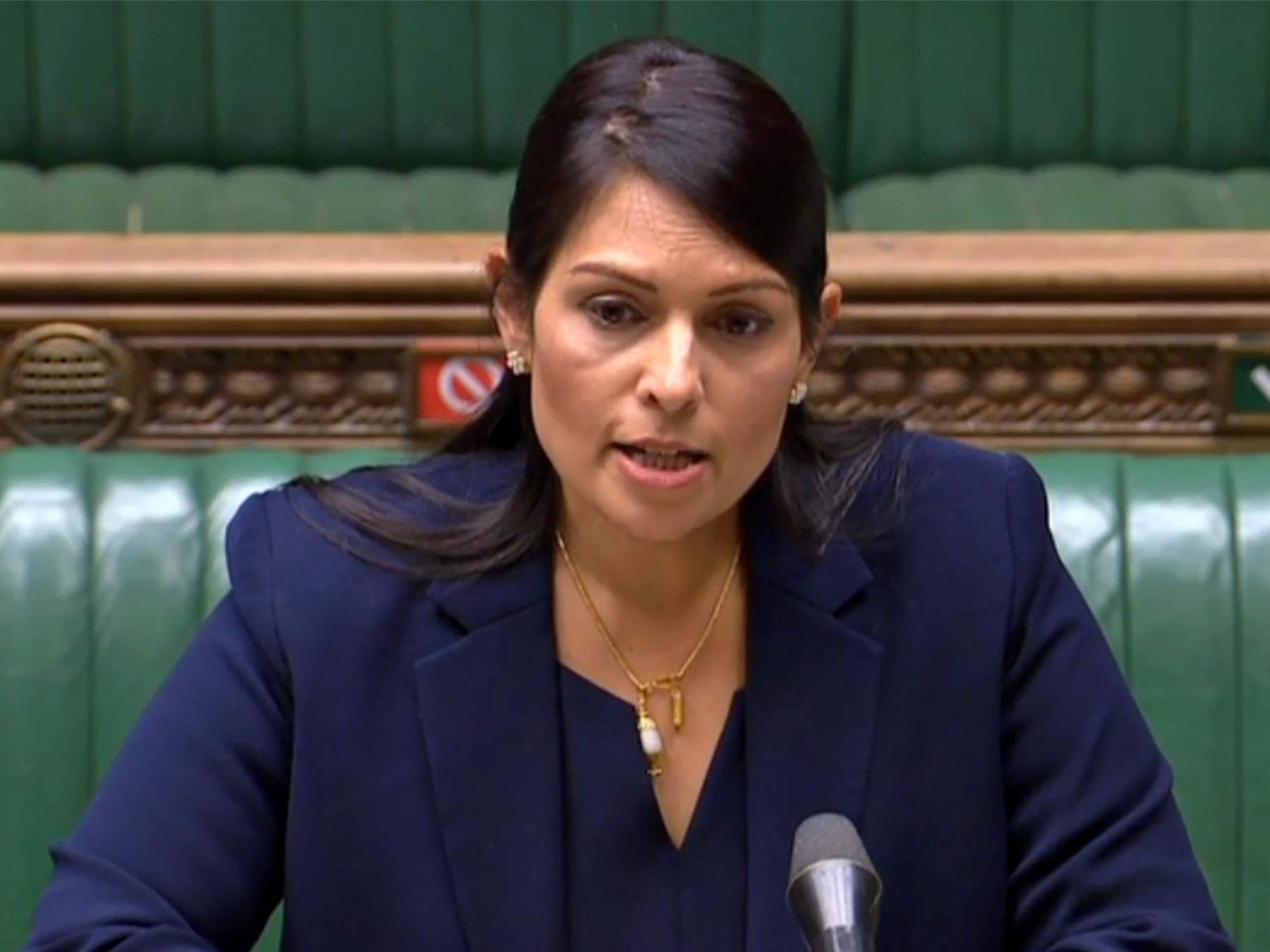As migrant crossings rise, ‘take back control’ turns out to be an illusion
Editorial: Leaving the EU means the UK will find it harder to deal with the people crossing the Channel in small boats

The home secretary has discovered that slogans are one thing and workable policy quite another. The rise in small boat crossings from France to England, presumably encouraged by the calm weather, seems to have taken her by surprise.
She appears to recognise that this human traffic is a problem for a government that promised to “take back control” of Britain’s borders. But she also knows that it is quite hard to do anything meaningful about it.
So her main response is to condemn the crossings as “appalling” and the numbers “unacceptably high” and “shameful”, in the hope that her voters will mistake loud condemnation for effective action.
To be fair to Priti Patel, she was reasonably honest in her statements on Twitter about the difficulties she faces. “There are legal and operational barriers to stopping small boats,” she said. She pointed out that refugees are supposed to claim asylum in the first safe country they reach, and therefore have no right to leave France, a safe country, for the UK. And she is right to point out that the crossing is dangerous, although there have been no recent reports of fatalities.
But she is right, too, to say that “once boats reach UK waters we’re duty bound to help”. She has promised to “send the navy in” in order to gain some headlines, but the navy needs the agreement of the French government to enter French waters to return people.
Herein lies the Brexit paradox, as set out by Colin Yeo, an immigration lawyer whose book, Welcome To Britain: Fixing Our Broken Immigration System, has just been published. “The French authorities would need to agree to accept any returns and because of the variety of hard Brexit sought by the UK government, the current returns arrangement, called the Dublin regulation, is ending on 31 December 2020, with no sign of any replacement being negotiated. It will become harder to return migrants to France in 2021, not easier.”
Ms Patel accepts that we “need the cooperation of the French to intercept boats and return migrants”, but seems to have no plan for continuing the current patchy level of cooperation beyond December.
Who could have imagined that a simple slogan such as “take back control” could turn out, in our interdependent world, to mean that Britain has less control in practice over complex problems requiring international cooperation?
Join our commenting forum
Join thought-provoking conversations, follow other Independent readers and see their replies
Comments